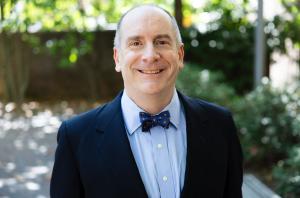James H. Lambert

About
Dr. Lambert received the 2025 Aspen Institute Italia Award for scientific research and collaboration.
With his graduate students, he won the Best Student Paper Award of the IEEE TEMSCOM Global 2025, San Diego, CA, USA.
He received the 2024 Distinguished Educator Award of the Society for Risk Analysis.
He received the 2023 Best Paper Award of the iCSEng International Conference on Systems Engineering.
He was the General Co-Chair of the 11th IEEE International Conference on Control, Decision and Information Technologies CoDIT2025.org (Split, Croatia).
He was the Chair of the 8th Engineering Systems Symposium CESUN2021.org (Charlottesville, VA, 2021), Chair of the Fifth World Congress on Risk (Cape Town, South Africa, 2019), President (2015-2016) of the Society for Risk Analysis (SRA), and Chair of the SRA Annual Meeting with over 800 participants (Washington DC, 2015).
He is a Fellow of the AAAS (F.AAAS), Fellow of the IEEE (F.IEEE), Fellow of the ASCE (F.ASCE), Fellow of the SRA (F.SRA), Board Certified by the American Academy of Water Resources Engineers (BC.WRE), and a licensed Professional Engineer (P.E.) of the Commonwealth of Virginia.
He is Editor-in-Chief of the Springer journal Environment Systems & Decisions, an Area Editor of the Wiley journal Risk Analysis, and an Associate Editor of IEEE Open Journal of Systems Engineering.
He has served on the Permanent Monitoring Panel on Mitigating Catastrophic Risks, National Academy of Medicine Standing Committee on Health Threats Resilience and Workforce Resilience, National Cooperative Highway Research Program, Aviation Cooperative Research Program, and Transit Cooperative Research Program. He was a Delegate (2012-2015) of AASHTO to the World Roads Association Congress (PIARC).
Education
Ph.D. University of Virginia, 1994
M.S. University of Virginia, 1990
B.S.E. Princeton University, 1988
Dr. Lambert was a Keynote Speaker at the 2025 Congress of the Society for Risk Analysis-Latin America, in Curitiba, Brazil; the 2024 IEEE GESS in Long Beach, CA; and the 2024 IEEE SysCon in Montreal, Canada.
Research Interests
Selected Publications
Lambert, James H., R. Ranger Dorn, Bilal M. Ayyub, William A. Barletta, John F. Organek, Marco Piras, Megan E. Gunn, and S. Fabrizio Zichichi
